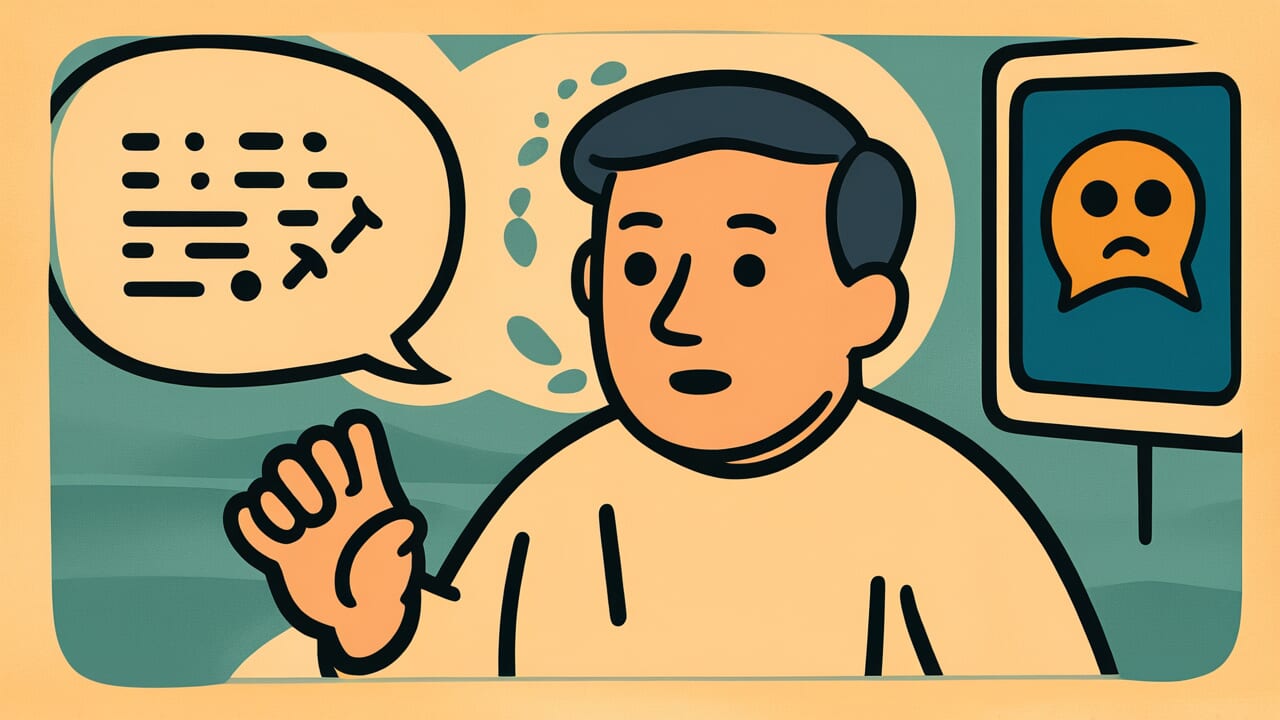How to Read “When thoughts are within, color appears without”
Omoi uchi ni areba iro soto ni arawaru
Meaning of “When thoughts are within, color appears without”
This proverb means that what you think in your heart will always show in your facial expressions, attitude, and actions. No matter how hard you try to hide it, your inner emotions and thoughts will seep through to the outside.
It reveals a fundamental truth about human nature.
People use this saying when someone’s true feelings are visible in their expressions or behavior. It also describes situations where you can’t hide your own emotions.
For example, when you try to act friendly toward someone you dislike, your expression might stiffen. Or when you’re in front of someone you like, your nervousness shows in your behavior.
This truth remains valid today. In fact, psychology has scientifically proven that emotions show through unconscious signs like micro-expressions and body language.
Even when you put on a poker face, your true feelings appear in your eye movements, posture, and tone of voice.
Origin and Etymology
The exact source of this proverb has several theories. Most likely, it formed in Japan under the influence of Chinese classical thought, especially Confucianism.
The contrasting structure of “within” and “without,” “thoughts” and “color” reflects the yin-yang concept characteristic of Eastern philosophy.
The word “color” is particularly interesting. In classical Japanese, it meant “facial color” or “expression.”
Today we think of color as hue or shade. But in old Japanese, it referred to a person’s appearance and manner in general.
So “color appears without” means your inner heart shows in all outward elements like facial color, expressions, and attitude.
This proverb likely emerged from a deep tradition of observing people. During the samurai era, reading someone’s true intentions could mean the difference between life and death.
In a culture that valued etiquette and manners, people developed an appreciation for the alignment between inner and outer self.
The idea that mind and body aren’t separate, that mental states always manifest physically, connects to Eastern medicine philosophy as well.
This proverb expresses wisdom about human nature accumulated over centuries in simple, memorable words.
Usage Examples
- She pretended to be fine, but when thoughts are within, color appears without—she couldn’t hide her worried expression
- I tried to act confident in the interview, but when thoughts are within, color appears without—my nervousness came through in my voice
Universal Wisdom
The truth this proverb speaks lies in the integrated nature of human existence. We tend to treat mind and body as separate things.
But in reality, they’re deeply connected as one being.
What you feel in your heart will always express itself through your body, whether you’re aware of it or not.
Why has this proverb been passed down through generations? Because it touches on the essence of human relationships.
In social life, we sometimes need to hide our true feelings. But our ancestors understood that hiding them completely is impossible.
This insight also serves as wisdom that protects human honesty. If you can’t hide it anyway, you might as well be honest from the start.
Rather than spending energy maintaining a facade, you should focus on cultivating your inner self. That message seems embedded in this saying.
At the same time, this proverb demonstrates deep human understanding. People should read others’ true intentions not just from words, but from expressions and attitudes.
Our ancestors understood through experience the importance of nonverbal communication.
It teaches that in human relationships, the sensitivity to perceive genuine feelings that seep through matters more than superficial words.
When AI Hears This
The human brain processes about 11 million bits of information per second. Yet we can consciously control only about 40 bits of that.
This means the emotions and thoughts we try to hide exist within the remaining 99.9% of information processed outside consciousness. They leak out through the body unconsciously.
In information theory, there are physical limits to completely compressing and hiding information. For example, anger is a complex state where thousands of neurons fire in the brain.
When you try to compress that into a simple output like “calm face,” information inevitably leaks through other channels.
A slight tremor in your voice, changes in breathing rhythm, pupil dilation, subtle muscle tension—these function as redundant channels, backup outlets for information.
Modern emotion recognition AI can detect micro-expressions lasting 0.04 seconds that humans can’t consciously perceive. It can identify voice frequency variations below 2 hertz.
This shows that information leakage isn’t just a metaphor but a measurable physical phenomenon.
The human interior is like a hot object. No matter how much insulation you wrap around it, heat escapes as infrared radiation.
Similarly, emotion as a high-entropy state always manifests as observable signals externally. Complete secrecy cannot be maintained thermodynamically.
Lessons for Today
What this proverb teaches us today is the importance of cultivating our inner selves. Now that social media and online communication dominate, superficial impression management has become easier than before.
But when you actually meet people in person, or even through video calls, your true nature will always come through.
That’s why you should focus on enriching your interior rather than polishing your exterior. If you truly have confidence, it will naturally show in your posture and expressions.
If you genuinely care about someone, that feeling communicates more than words ever could.
This proverb also offers hints for understanding others. Pay attention not just to people’s words, but to their expressions and attitudes.
Even if someone says “I’m fine,” if their expression looks clouded, they might really need help. Having such delicate observational skills helps you build deeper relationships.
In the end, alignment between inner and outer is the foundation of living with integrity.



Comments